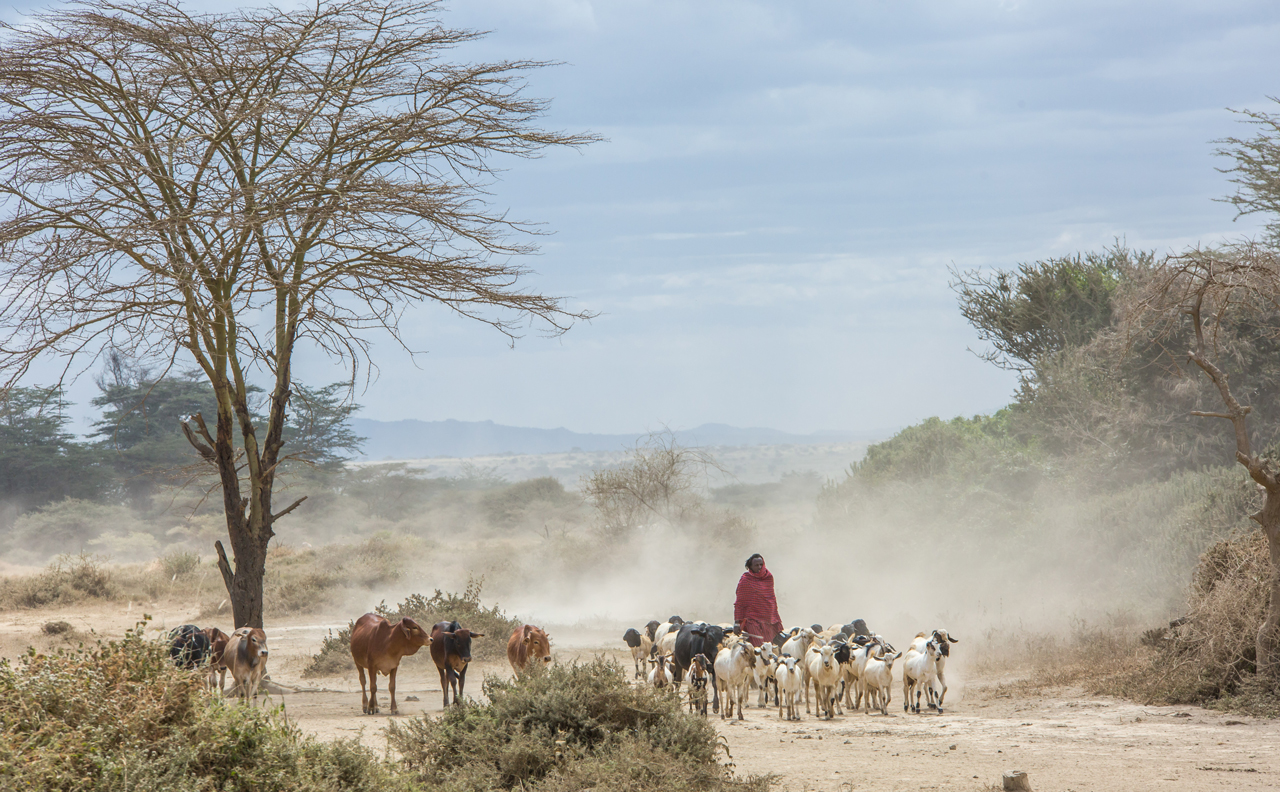Manyara-Tarangire ecosystem: a resource to be protected
Guardians of rangelands: women enterprise to recover the savannahs

Country
Protecting rangelands to ensure a future for pastoral communities
Savannas stretching between Manyara and Tarangire National Parks in Northern Tanzania are vital wildlife corridors, connecting ecosystems rich in wildlife. Here, many species are in danger: elephants, lions, leopards, cheetahs and lycaons. These areas support thousands of pastoral families and their livestock. In the past two decades, however, social and environmental changes threaten the survival of wildlife, livestock, and communities.
The rise in human population corresponds to an increase in livestock, and relentless land degradation (15% of the total) threatens the population's main source of income.
Women pay the highest price. They are still strongly discriminated by patriarchal culture and lack in economic opportunities. However, they are also the guardians of social, cultural and environmental values. This pilot project targets these women, to make them the main promoters of the restoration and sustainable management of pastures.
In the Tarangire-Manyara ecosystem, extreme weather variations, exacerbated by climate change, make subsistence pastoralism a high-risk economic practice. Wildlife populations decline and with them vegetation balances. Pastures are no longer nutritious and new plants invade the most degraded areas of pasture. Subsistence agriculture expands, further exacerbating degradation. Savannas, generally unsuitable for agriculture, once cultivated, are reduced to barren plots of land. This completely unsustainable mechanism fuels a spiral of degradation and poverty that penalizes women, the most fragile and vulnerable ones in a strongly patriarchal society.
A key resource for protecting rangelands
The project relies on the collaboration with the University of York and the Ujamaa Community Resource Team. We are working together with 60 Maasai women to restore degraded lands and thus ensure the livelihood of agro-pastoral communities. Training is extremely important. Through specific training courses, the women are learning effective and sustainable solutions to recover the most degraded rangelands in their villages. They will share the lessons learned with other women in the community. The results are tangible: through the women's hard work, invasive plants have been removed from the first 100 hectares of savannah. The upcoming rains will allow the seeds naturally present in the soil to germinate.
From these lands, the women manage to earn a small amount of income, derived both from the sale of the grass and from the new pastures, now reserved for their own goats and sheep. With their new knowledge and skills in restoring degraded pastures, the 60 women will become a key component in the decision-making processes of pastoral communities.
Training for foremen and rangeland guardians
Pasture health and herd health are closely linked. Through dedicated training courses, male heads of households are learning how to identify and monitor signs of environmental degradation. They are also being introduced to new strategies to reduce environmental risks, which have a serious impact on food security.
Four new pasture health wardens have also been trained in each village: these are young men and women, selected by the communities. Their task is to help the pasture management committees with prompt and useful information to adapt pasture management to climate change.
Protection of pastures at school
Even at school you can learn to protect fragile ecosystems. That's why we promote awareness campaigns targeting about 2,000 students of primary and secondary schools in the area. Three elementary school have also requested our support to improve the conditions of 40,000 square meters of pastureland.
The Tarangire-Manyara ecosystem is an essential resource: protecting it is everyone's duty, and it should be a team work.
Il progetto in numeri
180k
potabile in Tanzania
22k+
raccolti a Ibo, Mozambico
52k+
in Mozambico e Myanmar
11k+
di educazione nel mondo
200
di attività economiche
in Tz e Myanmar
1700
in Italia
1700
in Italia
52k+
in Mozambico e Myanmar
1700
in Italia
